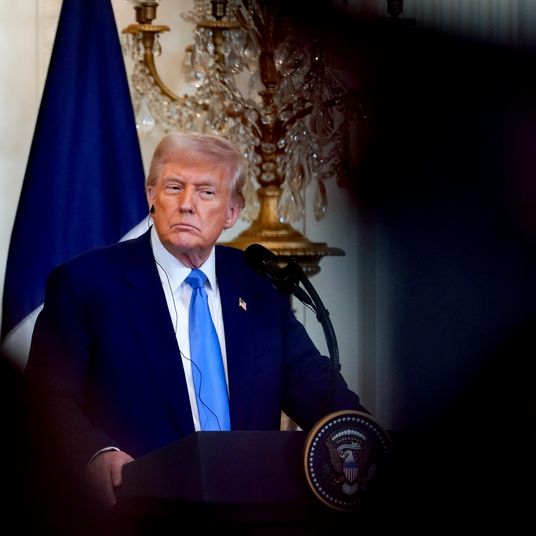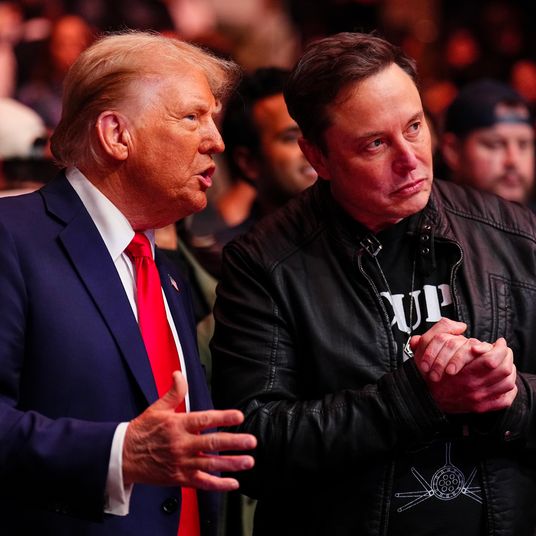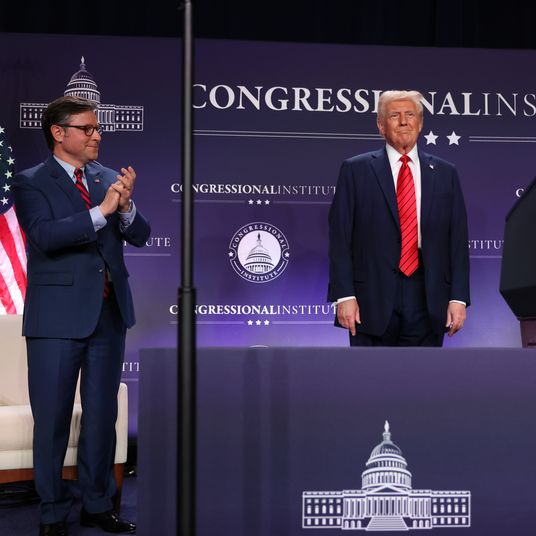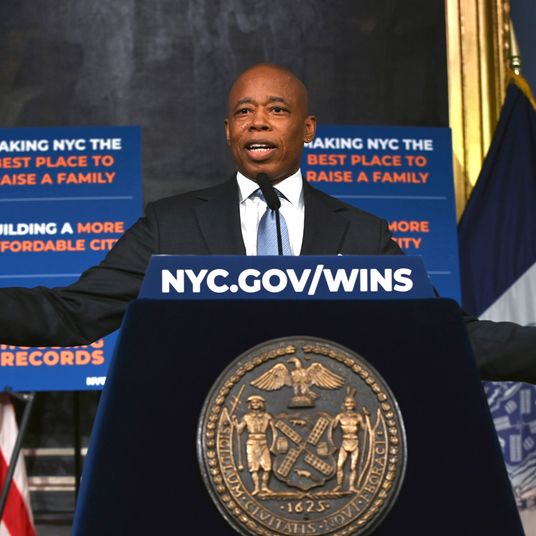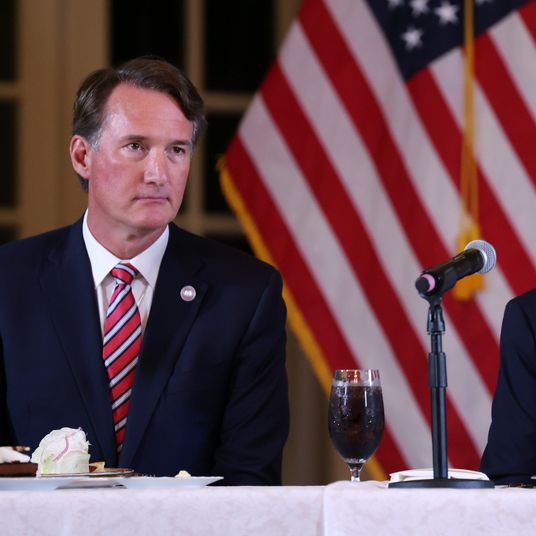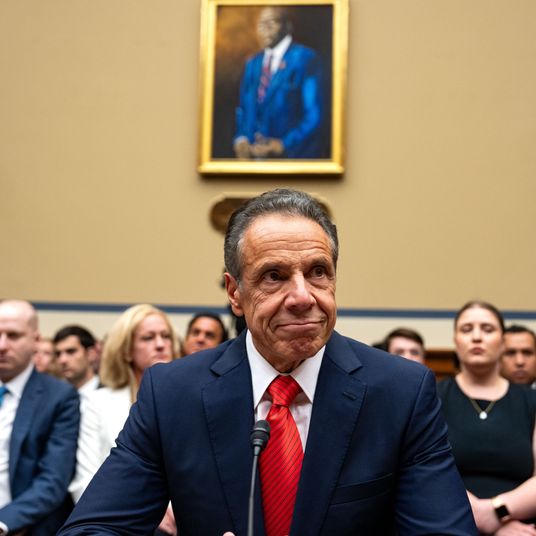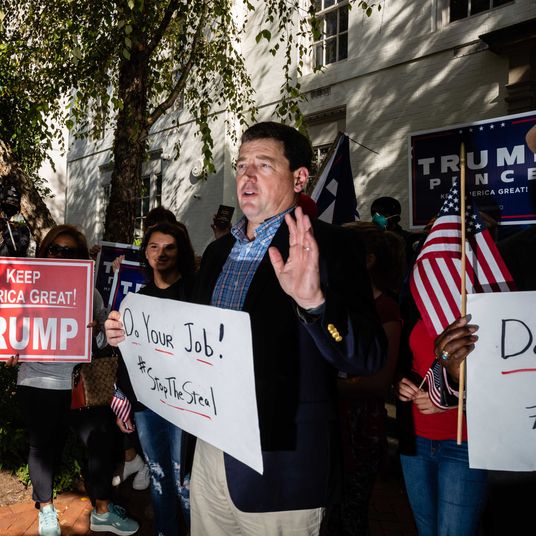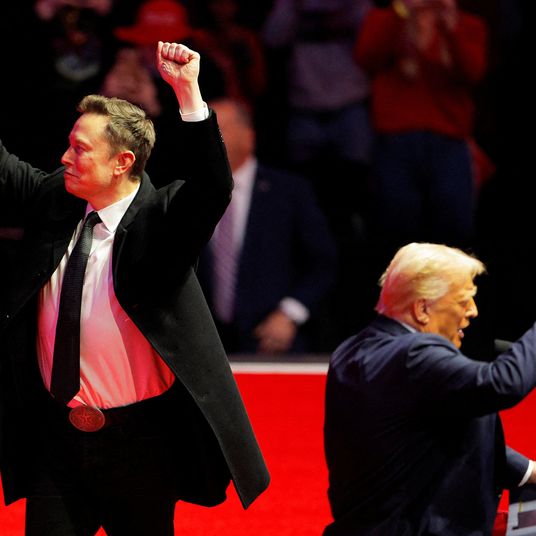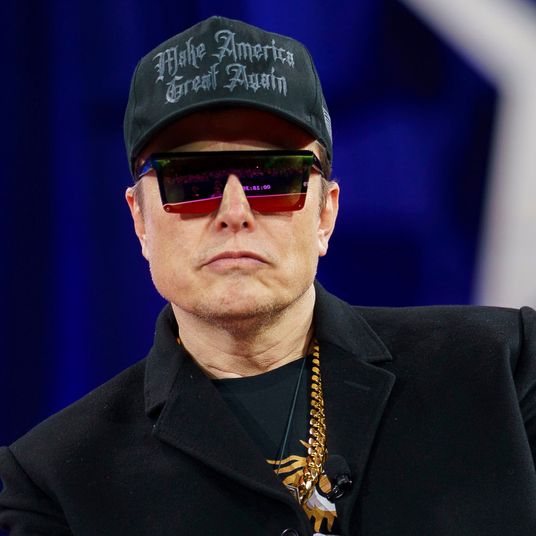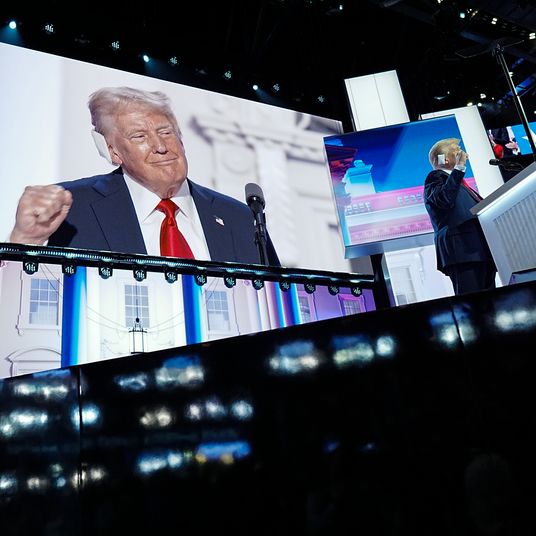This week, Republicans began to complain openly about the downside to having so many of their nominees for high office composed of fascists, dilettantes, and the mentally ill. Senate Minority Leader Mitch McConnell told reporters that his party might fail to win any net seats, despite the favorable midterm environment, due to what he euphemistically calls their “candidate-quality problem.” Similar complaints have followed Republican nominees like Doug Mastriano, Kari Lake, and other enthusiastic election deniers. The main fear, to be sure, is that the CQP will lead to fewer Republicans holding office, not that they might pose a danger if elected. Still, the CQP has become the Republican mainstream’s primary complaint with Donald Trump, who endorsed or inspired many of the weirdos and amateurs putting these seats at risk.
Also this week, Wyoming Republicans decisively killed Liz Cheney’s career in elected office. By the end, Cheney had almost no Republican defenders left. Like Leon Trotsky during the Stalin era, her name had become an all-purpose label to discredit the regime’s dissidents, however mild or imaginary their heresy may be. Dan Crenshaw, a right-wing Republican frequently targeted by more extreme right-wingers, angrily denied having endorsed Cheney, who he says “went off the deep end” by continuing to say the 2020 election was not stolen.
Having driven out the one member of their party who fought back against Donald Trump’s election lies, Republicans find themselves mystified that election liars are taking over. What is fascinating is that the party’s mainstream wing sees no connection between these two things at all.
Trump began to signal his refusal to accept the results of the 2020 election months beforehand. The Republican Establishment has dealt with this by refusing to acknowledge it and hoping the problem goes away on its own. Mick Mulvaney famously wrote an op-ed before the election predicting, “If He Loses, Trump Will Concede Gracefully.” When Trump refused to concede defeat, McConnell went along, saying, “A few legal inquiries from the president do not exactly spell the end of the republic.” For a few days during and after the insurrection, Republicans were prepared to make a break with Trump, but quickly reconsidered. One week after the insurrection,
on January 13, Axios reported that McConnell still leaned toward impeaching Trump, but his allies were “divided whether to do it with one quick kill via impeachment, or let him slowly fade away.” The question answered itself: If Trump was going to “fade away” without them having to take action, why bother?
After making the decision to stop challenging Trump’s election lies, it followed that the rest of the party needed to go along. Cheney stubbornly refused. As a result, Republicans stripped her of her leadership post and then began to abandon her as Trump backed a primary challenge.
The party Establishment decided to treat Trump’s coup as a minor detail they could put to the side. Confronting the insurrection would open a damaging schism within the party. They expected the party to work together in an authoritarian-led coalition.
Accordingly, the Establishment Republican view is that Cheney has nobody to blame for her defeat but herself. Cheney might be correct about the 2020 election result, but she should have kept quiet. “In Wyoming, Cheney lost because her constituents saw that she cared more about fighting Trump than fighting Biden. She was more concerned with waging a civil war within the Republican Party than the inflation that is forcing her voters to choose between staples such as gas and food,” argues Marc Thiessen. “Telling truths is important, but we rightly regard people who only ever tell the same one truth all the time as fanatics who have lost perspective,” explains the National Review’s Dan McLaughlin.
But of course one completely foreseeable consequence of the party’s decision to cede the argument over 2020 to Trump is that it has allowed Trump to retain his influence. Republicans complain over the personal aspect of Trump’s influence — he has interceded in primaries to endorse unqualified candidates — but his ideological influence is more profound.
If Republican voters believe the 2020 election was stolen, of course they are going to demand their party nominate candidates who will stop it. Why would they even consider “moving on” from a historical crime so profound? It makes perfect sense that their primary consideration in choosing nominees going forward is a willingness to fight against the future steals they believe will occur.
Yet the party Establishment has persisted in believing Trump’s influence is the result of choices other than their own refusal to confront him. This explains why the Democratic Party tactic of running ads highlighting the extremism of Trumpist primary candidates, and thus to help them win, has become an obsession of anti-anti-Trump Republicans. The tactic may be deplorable, but its effect on the outcome of Republicans primaries is marginal. The greatest determinate by far is the GOP backing off its brief determination to purge Trump. Once they decided they couldn’t win without him, they ceded all the leverage to Trump.
In a just world, the Republican Establishment would pay a dear price for its cowardice. In reality, the price is likely to be bearable. Very few Republicans have any moral compunction against electing extreme or even outright fascistic Republicans to office. Witness the near-total absence of any intraparty resistance to candidates like election denier Kari Lake or Christian nationalist and Nazi ally Doug Mastriano, both of whom have enjoyed full public endorsements from Ron DeSantis, the main hope of the GOP’s non-Trump wing.
The Establishment is not worried about kooks being elected. It is worried about the kooks losing to Democrats.
But the price, while too small, is nonetheless real. It may well make the difference between Republicans gaining and losing the Senate. And given that power is the only language Republicans seem to understand, the best hope defenders of democracy have is that the Republicans underperform in the midterm elections, and the party Establishment comes to regret its appeasement of Trump.







